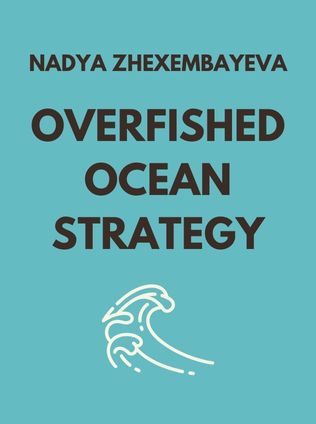
Overfished Ocean Strategy
Powering Up Innovation for a Resource-Deprived World
By Nadya Zhexembayeva
Published 06/2014
About the Author
Nadya Zhexembayeva is a business owner, author, and educator, serving as the Coca-Cola Chaired Professor of Sustainable Development at IEDC-Bled School of Management in the Slovene Alps. Her expertise in sustainable development and innovation has led her to work with a diverse range of clients, including the Coca-Cola Company, ENRC PLC, Erste Bank, Henkel, Knauf Insulation, and Vienna Insurance Group. Her extensive experience in consulting and academia uniquely positions her to address the critical challenges of resource scarcity in the modern business landscape.
Main Idea
"Overfished Ocean Strategy" by Nadya Zhexembayeva presents a revolutionary approach to business strategy in an era of resource scarcity. The book argues that traditional linear economic models, characterized by a take-make-waste approach, are no longer sustainable. Instead, Zhexembayeva proposes a circular economy model, where waste is minimized, and resources are continually reused. The book introduces five essential principles to guide businesses through this transition, emphasizing innovation, resource efficiency, and sustainable growth.
Table of Contents
- Where Are the Fish? The New Competitive Reality
- Principle One: From Line to Circle
- Principle Two: From Vertical to Horizontal
- Principle Three: From Growth to Growth
- Principle Four: From Plan to Model
- Principle Five: From Department to Mindset
- What Should Business Do?
Where Are the Fish? The New Competitive Reality
The metaphor of the overfished ocean serves as a poignant illustration of the current state of global resources. Just as fishermen find fewer fish in increasingly depleted oceans, businesses today face shrinking supplies of essential resources. Zhexembayeva highlights the urgency of this crisis, noting that the depletion of resources is not just an environmental issue but a fundamental economic challenge. She references a Stanford University study predicting that overfishing could eliminate all wild seafood by 2048, underscoring the dire consequences of continuing with business as usual.
"The linear, throwaway economy of today - in which we extract resources at one end, create products, and throw them away at the other - is rapidly coming to an end. In every industry, creative minds are learning how to make money by taking this line and turning it into a circle." - Nadya Zhexembayeva
The Ocean of Resources
Zhexembayeva emphasizes that the depletion of natural resources is a global crisis affecting all aspects of business and life. She cites a McKinsey report stating that since the 21st century began, real commodity prices have increased by 147%. This sharp rise reflects the growing scarcity of essential materials, forcing businesses to rethink their strategies for resource management and efficiency.
"Since the turn of the 21st century, real commodity prices increased 147 percent. At a minimum, an additional $1 trillion annual investment in the resource system is necessary to meet future resource demands." - Nadya Zhexembayeva
The Ocean of Waste
The throwaway culture that has dominated the 20th century is becoming unsustainable. Zhexembayeva points out that many regions are running out of landfill space, with countries like the UK and cities like Dubai reaching their limits. This crisis presents an opportunity for innovation, where waste can be transformed into valuable resources through intelligent design and efficient processes.
"Waste equals food. Hundreds of miles of plastic floating in the ocean is an environmental disaster indeed, but it is also a whole bunch of wasted petroleum that could, if approached with intelligence, be turned into a business opportunity." - Nadya Zhexembayeva
The Ocean of Ideas
Zhexembayeva notes a decline in venture capital investment, suggesting a need for businesses to shift their focus from selling products to providing services and meaning. This transition requires a new set of competencies and a mindset geared toward innovation and sustainability.
Sign up for FREE and get access to 1,400+ books summaries.
You May Also Like
Rich Dad Poor Dad
What the Rich Teach Their Kids About Money - That the Poor and Middle Class Do Not!
By Robert T. KiyosakiFreakonomics
A Rogue Economist Explores the Hidden Side of Everything
By Steven D. Levitt and Stephen J. DubnerThe Lean Startup
How Today's Entrepreneurs Use Continuous Innovation to Create Radically Successful Businesses
By Eric RiesWho Moved My Cheese?
An Amazing Way to Deal with Change in Your Work and in Your Life
By Spencer Johnson, M.D.Factfulness
Ten Reasons We're Wrong About the World – and Why Things Are Better Than You Think
By Hans RoslingMake Your Bed
Little Things That Can Change Your Life...And Maybe the World
By William H. McRaven



















